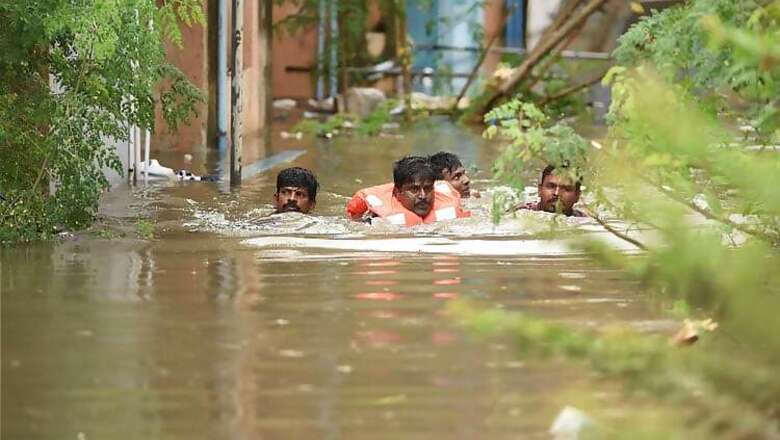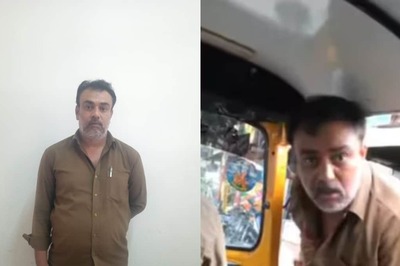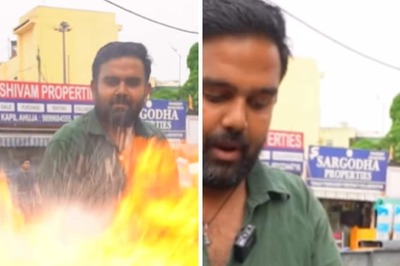
views
The cries for help are deafening as the entire city of Chennai has come to a virtual standstill. The same cries echoed in Uttarakhand just two years ago and Mumbai a few years before that. Over the last 14 years, India has faced 131 instances of major flooding, 51 instances of cyclones, 21 instances of heat and cold waves and several instances of major drought.
Climate change is real. India is already feeling its impact finds a newly published report by IIM Ahmedabad, IIT Gandhinagar and the Council on Energy Environment and Water (CEEW), one of India’s leading climate and energy think-tanks. Using high resolution data from climate models and similar statistical approaches as those used by NASA, the report finds that monsoons in India will become more erratic in the future.
Eastern parts of India are likely to receive increased amounts of rainfall. Further, several parts in Central India are at increased risk for drought in the near future. Average temperatures at night are likely to increase by 1-1.5°C in the next 30 years. An elevation of night-time temperatures, growing degree days and erratic rainfall is likely to put great pressure on food, water and health systems. This is concerning as declines in food and water availability may exacerbate malnutrition, migration and conflict, as echoed in this report.
Currently, the associated losses to the economy are a staggering $5-6 billion per annum. These may increase manifold in future depending on future temperature transitions. Current levels of spending on enhancing adaptive capacity ($92 billion) may increase up to $360 million in 2030. Despite this, the Adaptation Gap (risks that are not covered) could be as high as US $ 1 trillion. The adaptation challenges for India therefore are gargantuan.
On a per capita basis, India is not among the biggest emitters of carbon. However, India is amongst the most vulnerable countries to climate change impacts.India needs to push adaptation and loss and damage at COP21 in Paris. Chennai, then, may only be a harbinger of things to come.
(Hem H. Dholakia is Research Associate with Council on Energy, Environment and Water, an Independent Policy Research Institution, and a co-author of India’s Adaptation Gap Report.)




















Comments
0 comment